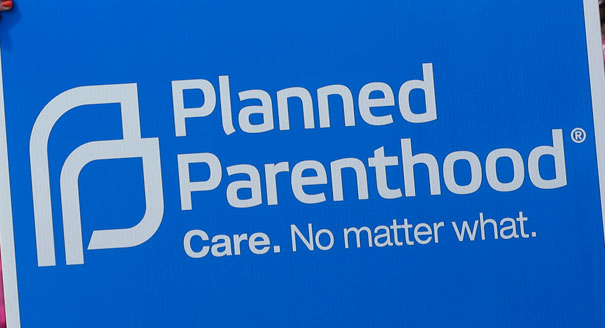On September 18th, the US House of Representatives approved the Defund Planned Parenthood Act of 2015 (HR 3134) in a vote of 241-187, which if enacted, could result in as many as 650,000 Americans losing access to preventative care and potentially several thousand more unintended pregnancies being carried to term, according to the nonpartisan Congressional Budget Office (CBO).
The task of writing an article about Planned Parenthood for my school newspaper is a coup quite difficult to undertake. The looming task has caused me to tap the backspace key again and again, perpetually feeling that my comprehension of the topic in all of its complexity is so slight that I’m doing an injustice to my peers to try to feign an authority of it. So instead, I’ll talk to you as a single voice. However, this “single voice” doesn’t lack complexity either. It is the product of my experiences and my desire to understand the experiences of others, as impossible as that is no matter how my mind twists and pirouettes in its attempts. This voice comes from a woman, a human, a colleague, a fellow member of this complexly intertwining web of moral battles, misunderstood political alignments, victims of political and social agendas, and somebody just trying to understand what all of this defunding business really means for me and my fellow human beings across boundaries of race, gender, and stigma.
One of the most wonderful parts of writing “Dear Dub” is that we get to write collectively as a house. Even if only one of us writes the article, we feel the support and encouragement of the other women who tear open the back door every day, muddling through classes, life, and unfulfilled cravings for homemade baked goods. Articles we publish are often proud manifestations of our late-night chats, boisterous digressions that question what’s and why’s of the world. But the conversations I’m going to talk about now are the ones that don’t fill common spaces of college dorms with histrionics and sass. The conversations I’m going to talk about are the ones that, all too often, don’t take place, that pulse up and down the veins of panicked women and men alike, which, statistics show, are usually standing just a few feet away from you. According to the Guttmacher Institute, nearly one in three women will have had at least one abortion by the time she reaches menopause. These conversations don’t occur because other loud voices permeate our stream of consciousness, locking our jaws together and twisting our nerves into tangled knots which prod themselves further into our hearts and minds, dictating how we think about ourselves and others. The discourse is guided by anti-abortionist radicals, who feel they can speak loudly and didactically enough to steer the agenda around reproductive rights, medicine, and scientific research.
But what about the voices of others? Those who shouldn’t feel ashamed to have had to have made a hard choice. What about those who benefit from family planning advice, cancer screenings, and contraceptive health? According to the CBO, as many as 650,000 women, chiefly in low-income neighborhoods or communities would lose at least some access to care under the current defunding agenda. The measure would hamper Planned Parenthood’s ability to provide low-income women with contraceptive education and counseling, pregnancy diagnosis and counseling, cervical and breast cancer screening, and education, testing, and referral services associated with sexually transmitted diseases.
The collective voice of individual experience and shared hardship of people who have benefited from Planned Parenthood should triumph over those voices of politicians who think they can play a keep-away game with women’s basic health-care services. The choice of what I want to do with my uterus is not a political pawn fueled by deceptive videos, but exclusively and solely mine.



